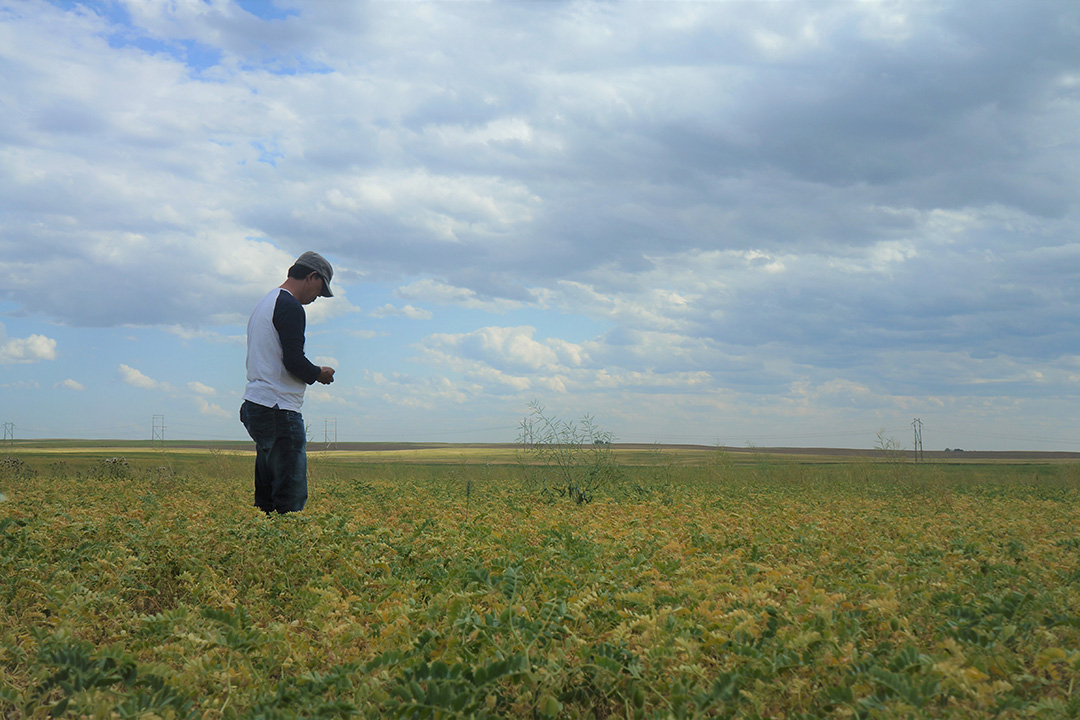
USask chickpea research aims to improve important food source for low- and lower-middle-income countries
SASKATOON – University of Saskatchewan (USask) researchers are part of a global team that used DNA to track the genetic evolution and migration of the chickpea, offering insights that could lead to more nutritious and adaptable varieties.
Improvements in this important crop for the majority of the world could help achieve “zero hunger” on earth. An article on the study’s findings was published in Nature on Nov. 10.
Dr. Bunyamin Tar’an (PhD) and Dr. Amit Deokar (PhD) of the USask College of Agriculture and Bioresources were involved in the overall research, sequencing the genetics of 200 Canadian chickpea plants, as well as performing associated data analyses.
“Chickpeas are one of the main protein sources for hundreds of millions of people — especially in South Asia, Africa and other parts of the world,” said Tar’an. “The research provides an avenue to support global efforts to develop chickpeas with even better nutritional value as well as more climate-resilient varieties.”
Funding for the USask research involved in the study was provided by the Saskatchewan Ministry of Agriculture and the Saskatchewan Pulse Growers.
“By employing whole genome sequencing, we have been able to affirm the history of chickpea’s origin in the Fertile Crescent (a crescent-shaped region in the Middle East, known to be home to some of the earth’s earliest civilizations) and identify two paths of diffusion or migration of chickpea to the rest of the world. One path indicates diffusion to South Asia and East Africa, and the other suggests diffusion to the Mediterranean region (probably through Turkey) as well as to the Black Sea and Central Asia (up to Afghanistan),” said Prof. Rajeev Varshney, a research program director at International Crops Research Institute for the Semi-Arid Tropics and leader of the study.
“More importantly, this research provides a complete picture of genetic variation within chickpea and a validated roadmap for using the knowledge and genomic resources to improve the crop.”
-30-
For more information, contact:
Victoria Dinh
USask Media Relations
victoria.dinh@usask.ca
306-966-5487

